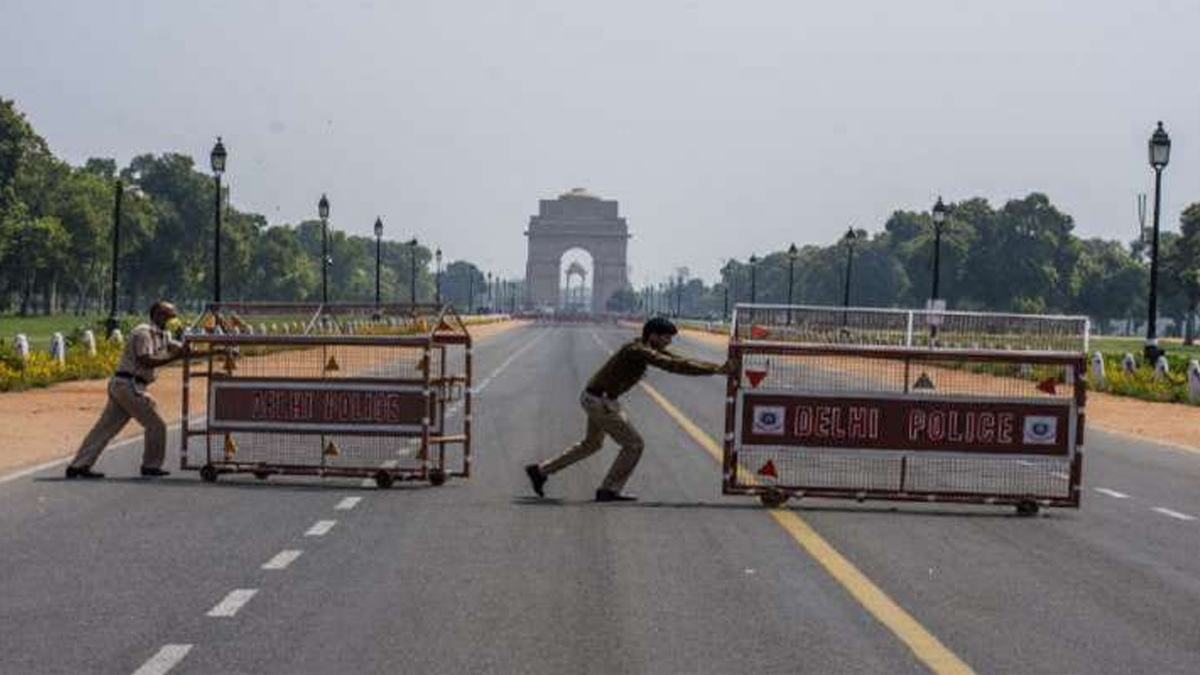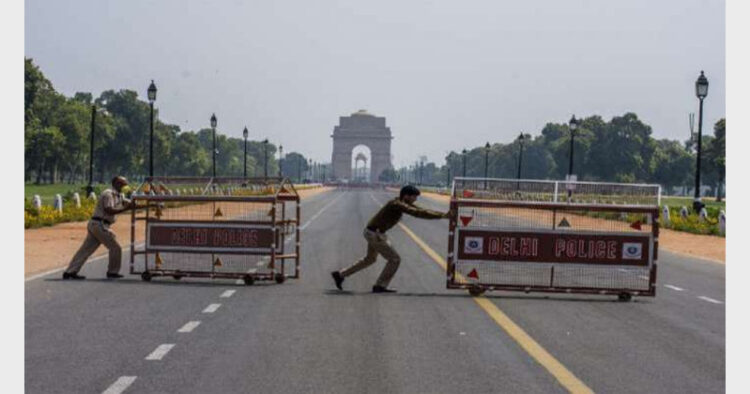
New Delhi: It is a panic button, one could say. A dangerous second Covid-19 wave is now sweeping across India’s vast geography forcing authorities to impose curfews and lockdown in key cities and vulnerable pockets.
Alarmed by the surge of the Covid19, the national capital will go for a week-long Lockdown beginning 2200 hours (10 pm) from April 19 till next Monday, Chief Minister Arvind Kejriwal said.
“We have no other option…..If we do not put a lockdown in Delhi now our healthcare infrastructure will collapse,” the Chief Minister said in a televised message to the city dwellers.
The city recorded about 25000 cases. The health infrastructures have come under stress.
“Lockdown will from tonight 10 pm to next Monday 5 am, for six days. However, all essential services will be available,” Delhi Chief Minister said.
The national capital recorded over 23,500 cases in the last 24 hours between Sunday and Monday (April 19).
“Things under stress now. If we do not resort to some harsh measures, things may collapse”.
The decision was taken at a meeting held between the Chief Minister and the city Lt Governor Anil Baijal, who is the nominee of the Modi government.
This is the second time since last year’s national lockdown announced by Prime Minister Narendra Modi that Delhi will witness another round of lockdown yet again.
Arvind Kejriwal had said on Sunday that less than 100 ICU beds are available in hospitals in the capital.
There have been reports of shortage of oxygen and key medicines such as the anti-viral Remdesivir as well from various government and privately-operated hospitals.
“The bigger worry is that in the last 24 hours positive rates of Covid19 have increased to around 30 percent from 24 percent,” Kejriwal had told journalists on Sunday. He also wrote a letter to the Prime Minister.
Delhi Chief Minister in his broadcast said those engaged in essential services will be exempted. These include government officials, police, health workers, pregnant women and other patients, people travelling to and from airports, railway stations, electronic and print media.
In 2020, India’s capital was witness to unprecedented movement of migrant workers back to their native villages creating a virtual crisis like situation. Commoners including women and children also faced hardship while they took on foot to ‘return’ home.
In March 2020, BJP leaders had alleged that there was an ‘element of instigation and misguiding the poor’ that had led thousands to gather in the outskirts of Delhi.
Similar reports had come from Congress-ruled Punjab and Rajasthan also.
This time around, the Chief Minister appealed on Monday to the migrant workforce not to leave the city.
“This is only a mini and short Lockdown. Do not panic and do not leave the city,” Kejriwal said in his Monday’s address to the citizens.
“I know when Lockdowns are announced, daily-wage workers suffer and lose their jobs. But I appeal not to leave the city. We will take care of you,” Kejriwal said.
Overall, the nationwide situation due to Coronavirus has deteriorated in India.
Officials have confirmed 1,620 deaths from the virus on Sunday.
India, which has been witnessing elections in five large states and festivals like Kumbh has been reporting more than 200,000 cases daily since April 14-15. Following Prime Minister Narendra Modi’s appeal, the Akharas have announced closure of the Kumbh.
The peak of positive cases in 2020 was around 93,000 cases only.
Social workers and medical experts say, people’s negligence, socialising in large numbers without masks and ignoring the warnings of a second wave have led to the present crisis.
“India began the year 2021 on a positive note with vaccines coming in. But large scale negligence prevailed. Things have now taken a gory turn,” says political analyst Ramakanto Shanyal in West Bengal, where three rounds of polling are yet to be taken.
India’s most industrialised state Maharashtra that houses the country’s commercial hub and cash rich entertainment capital, Mumbai, is following a curfew like situation from April 14 till 7 am on May 1.
Similar restrictions and night curfews have been imposed in various provinces and cities.
Sadly, the second wave has come at a time when the central government, Prime Minister Modi and economic experts are waiting for recovery of the economy trying to brave from the impact of last year’s shutdown.














Comments